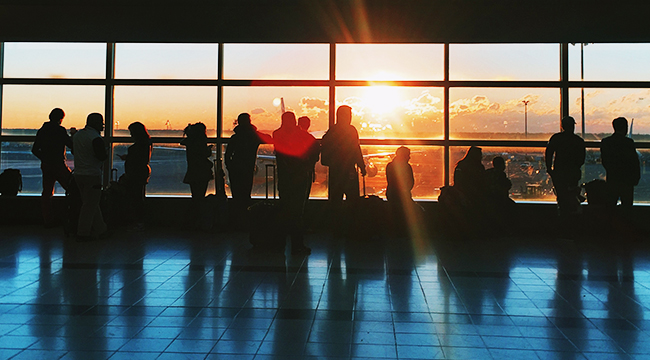
We’ve all probably been there at some point in our travel lives: You clumsily bundle your belongings into a bag. You race out the door to a taxi or Uber or bus to the airport — probably leaving the stove on or a window unsecured. You dash to the check-in desk with minutes to spare as socks and old Taco Bell receipts make a dust trail in your wake. Then you find out your flight is delayed and all that rushing was for naught. You eventually get on the plane an hour or so later. You know there’s no way you’ll land when they say you’ll land. Then, miraculously, you pull into your gate within five to ten minutes of the original time you were meant to arrive.
Was it a great tailwind? An expert pilot with all the right stuff? Real magic? Nope. The airline simply lied about how long the flight would take.
Over at Which? they picked up on a small shift in flight times over the last ten years. Compared to 2008, it’s now taking a little longer to fly from New York to Singapore or London to Bangkok or even Paris to Berlin. In fact, they found that Virgin Atlantic flights from London’s Heathrow to Newark Liberty were taking “35 minutes” longer on average, according to flight timetables. This trend spans the European budget carriers RyanAir and EasyJet as well is the big carriers like British and Virgin. All the while, the actual equipment has gotten a lot more efficient.
So what gives?
Well, to put it simply, airlines are tired of you being pissed off when everything doesn’t go exactly according to a timetable and then demanding compensation for late arrivals or delays. Look, the carefree skies we like to fly are getting more and more congested as we travel more. That leads to delays on the ground and in the air. Those delays then trickle through an entire day’s schedule of flights until serious delays occur in the latter half of the day (this is called the knock-on effect). Eventually, airlines will have to reschedule people’s connections and/or hand out vouchers for free flights; or, in Europe, pay up to €600/$700 for three-hour-plus delays. That, in turn, means they have to burn cash.
In order to “be on time more,” airlines are simply padding their arrival times to give the appearance of arriving on time — within reason. The average “padding” is 20-35 minutes, so it’s not some massive effect. In exchange, you get to enjoy a sense of relief when you actually arrive at your destination when you were scheduled to (even if that schedule is a bit of a lie).
(Via Which?)






